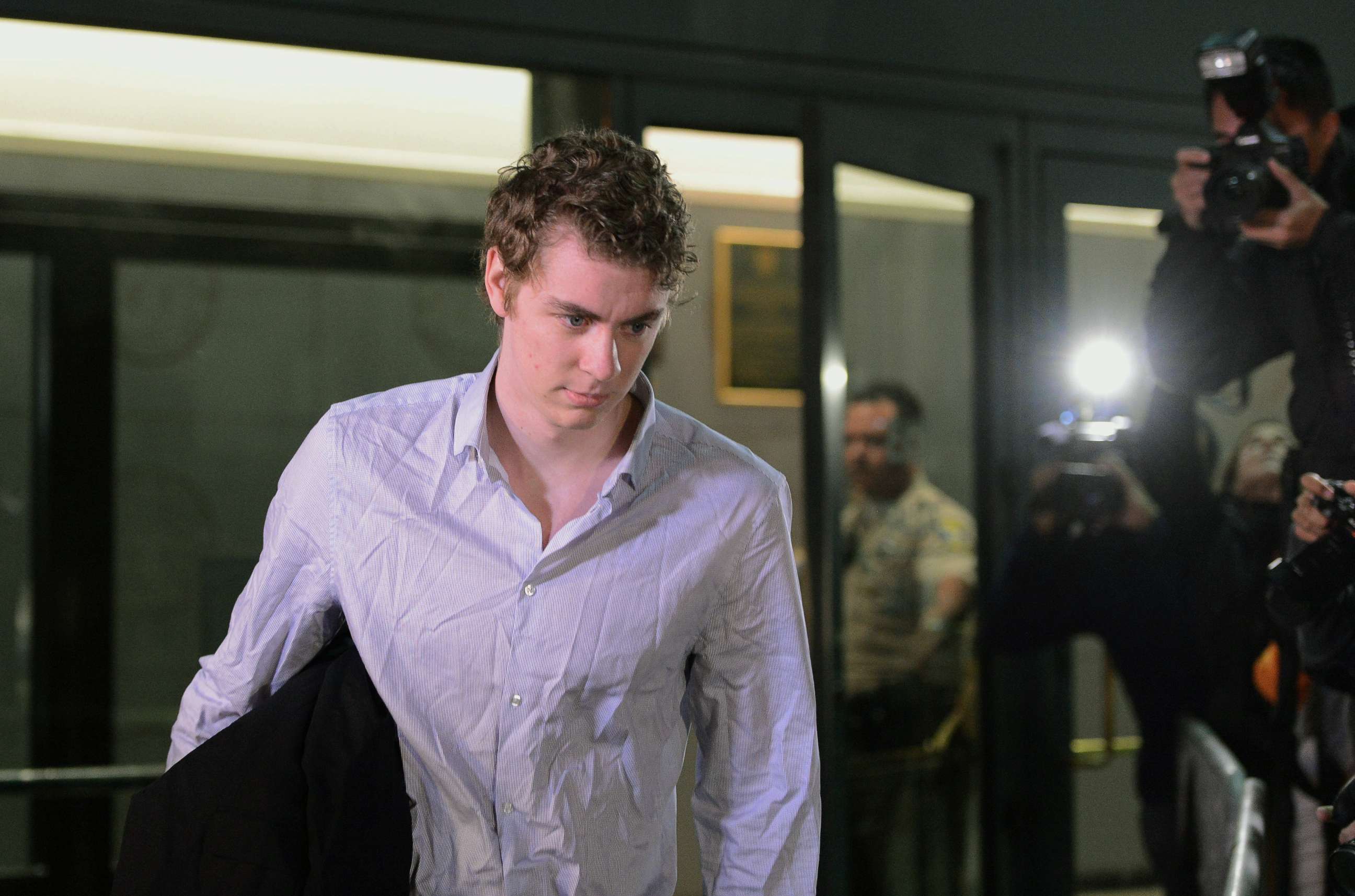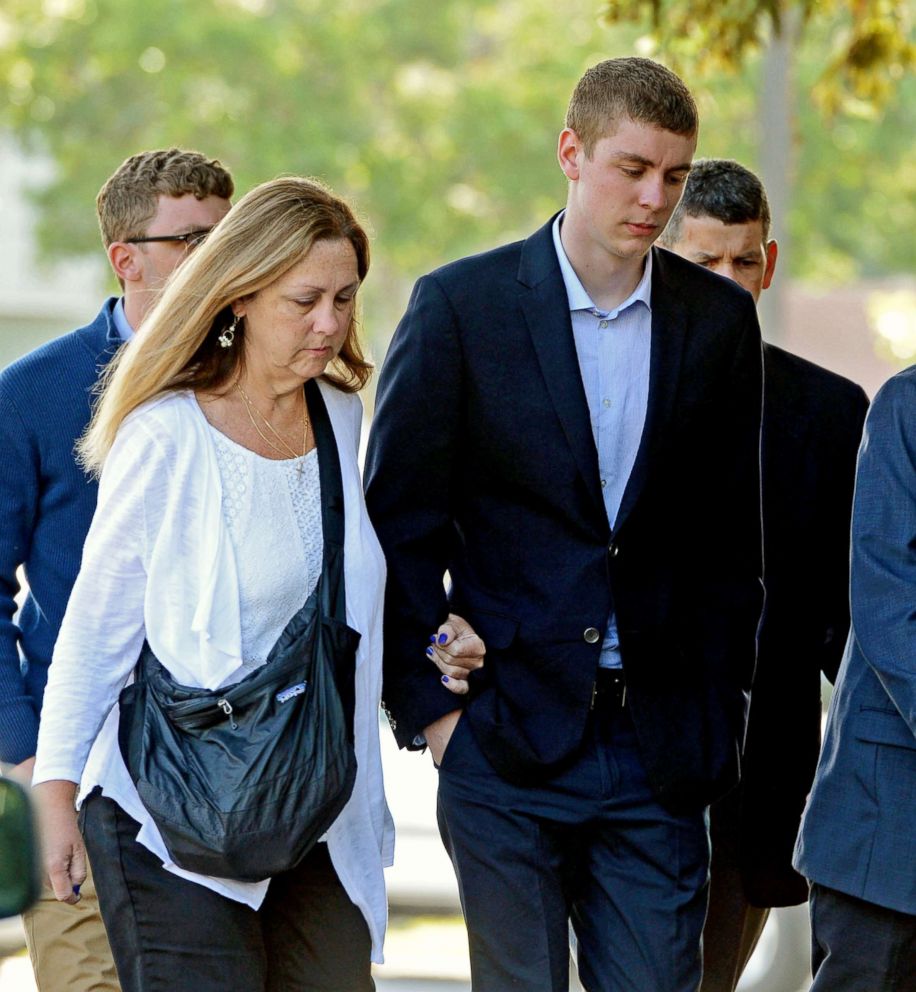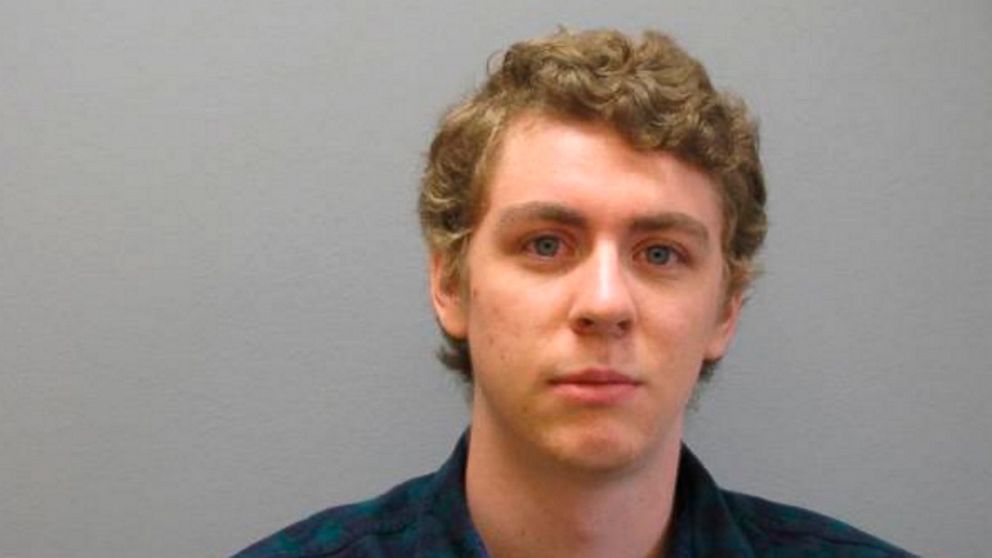Stanford swimmer Brock Turner has appeal and request for new trial denied
The Stanford swimmer whose light sentence after a sexual assault conviction had both his appeal and request for a new trial denied.
The latest legal step in the controversial case of Brock Turner came Wednesday when his appeal to have his convictions overturned was rejected by a California appeallate court on Wednesday.
In an earlier hearing about the appeal, Turner's attorney argued that since his client was clothed during the assault, Turner participated in "outercourse" rather than intercourse.
The latest decision rejecting the appeal, which was written by a panel of three judges, affirms the decision to convict Turner on three counts: sexual penetration of an unconscious person, sexual penetration of an intoxicated person, and assault with intent to commit rape. The decision details Turner's arguments against each conviction, along with the rebuttals from the appellate judges.

On the count of assault with intent to commit rape, the judges note that two graduate students saw the assault happening and helped secure Turner as he allegedly tried to flee the scene.
"While it is true that defendant did not expose himself, he was interrupted. Jurors reasonably could have inferred from the evidence described above that, if the graduate students had not stopped defendant, he would have exposed himself and raped Jane 1," the decision states.
According to the appellate decision, Turner and his attorneys argued that his convictions are "supported by insufficient evidence," but the appellate court found "that argument lacks merit."
The case stems from a sexual assault that happened after a fraternity party in January 2015, when Turner was a 19-year-old freshman at the prestigious university and the victim, identified only as Jane Doe, was a 22-year-old recent college graduate who went to the party with friends.
Turner was convicted in 2016 of sexually assaulting the woman, who shared her story in court, detailing how she was unconscious and had no memory of much of the night.

Turner was sentenced to six months in jail, prompting outrage over what was widely-seen as a far lighter sentence than the multi-year term he could have faced for such a conviction.
The judge in the original trial, Judge Aaron Persky was recalled by voters in June, with much of the support for his removal stemming from his decision in the Turner case.
Turner ended up serving three months in jail and was released in September 2016.




